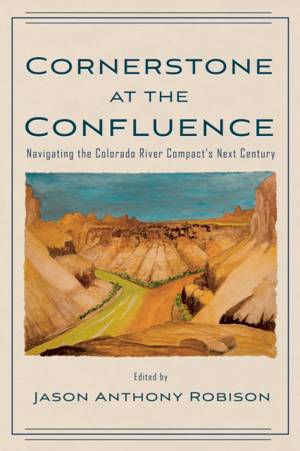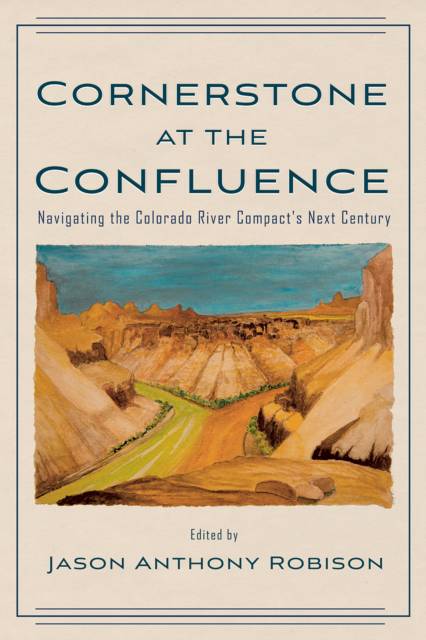
Wil je zeker zijn dat je cadeautjes op tijd onder de kerstboom liggen? Onze winkels ontvangen jou met open armen. Nu met extra openingsuren op zondag!
- Afhalen na 1 uur in een winkel met voorraad
- Gratis thuislevering in België vanaf € 30
- Ruim aanbod met 7 miljoen producten
Wil je zeker zijn dat je cadeautjes op tijd onder de kerstboom liggen? Onze winkels ontvangen jou met open armen. Nu met extra openingsuren op zondag!
- Afhalen na 1 uur in een winkel met voorraad
- Gratis thuislevering in België vanaf € 30
- Ruim aanbod met 7 miljoen producten
Zoeken
Cornerstone at the Confluence
Navigating the Colorado River Compact's Next Century
Hardcover | Engels
€ 132,95
+ 265 punten
Omschrijving
Signed on November 24, 1922, the Colorado River Compact is the cornerstone of a proverbial pyramid--an elaborate body of laws colloquially called the "Law of the River" that governs how human beings use water from the river system dubbed the "American Nile." No fewer than forty million people have come to rely on the Colorado River system in modern times--a river system immersed in an unprecedented, unrelenting megadrought for more than two decades. Attempting to navigate this "new normal," policymakers are in the midst of negotiating new management rules for the river system, a process coinciding with the compact's centennial that must be completed by 2026. Animated by this remarkable confluence of events, Cornerstone at the Confluence leverages the centennial year to reflect on the compact and broader "Law of the River" to envision the future. It is a volume inviting dialogue about how the Colorado River system's flows should be apportioned given climate change, what should be done about environmental issues such as ecosystem restoration and biodiversity protection, and how long-standing issues of water justice facing Native American communities should be addressed. In one form or another, all these topics touch on the concept of "equity" embedded within the compact--a concept that tees up what is perhaps the foundational question confronted by Cornerstone at the Confluence: Who should have a seat at the table of Colorado River governance?
Specificaties
Betrokkenen
- Uitgeverij:
Inhoud
- Aantal bladzijden:
- 328
- Taal:
- Engels
Eigenschappen
- Productcode (EAN):
- 9780816547647
- Verschijningsdatum:
- 8/11/2022
- Uitvoering:
- Hardcover
- Formaat:
- Genaaid
- Afmetingen:
- 155 mm x 231 mm
- Gewicht:
- 657 g

Alleen bij Standaard Boekhandel
+ 265 punten op je klantenkaart van Standaard Boekhandel
Beoordelingen
We publiceren alleen reviews die voldoen aan de voorwaarden voor reviews. Bekijk onze voorwaarden voor reviews.










